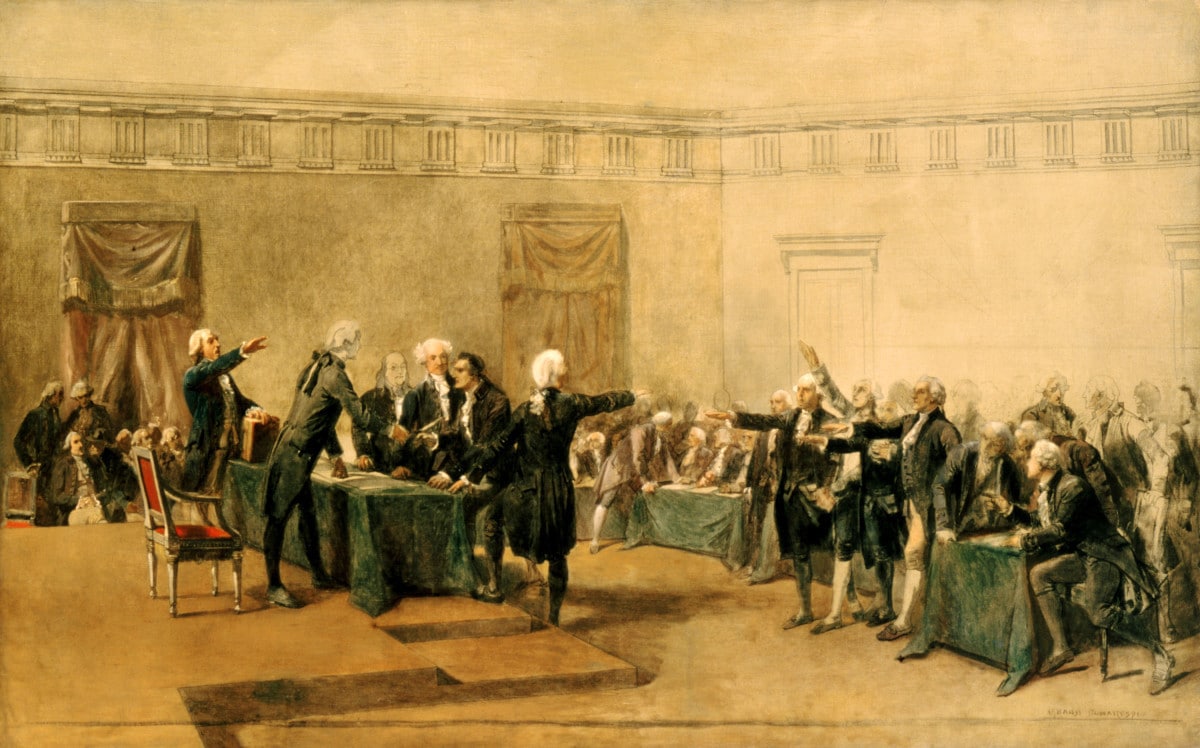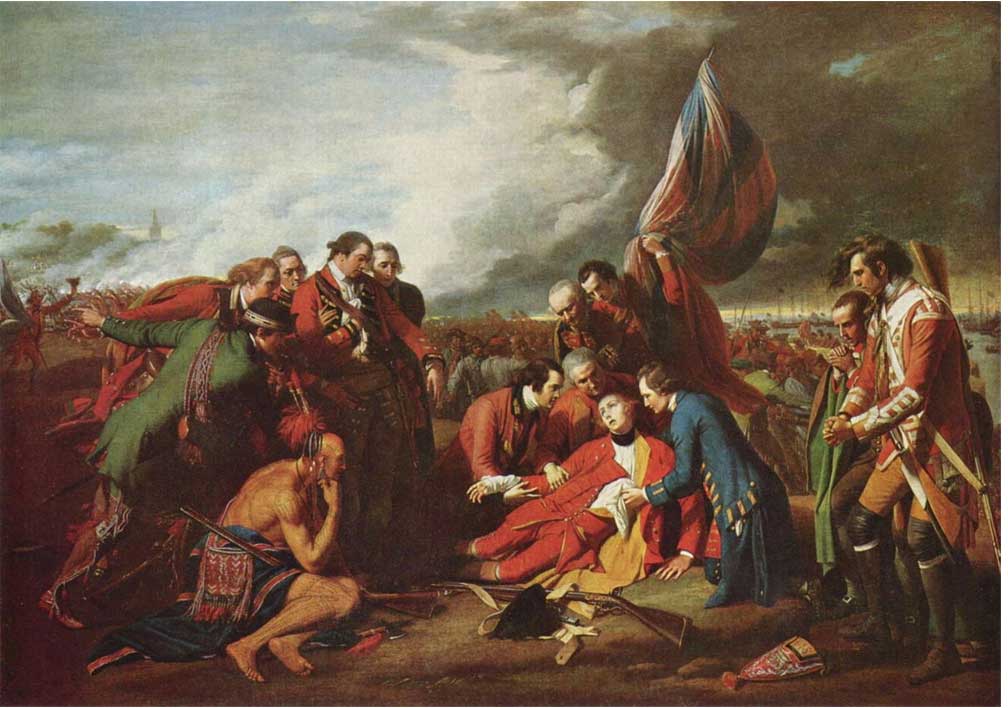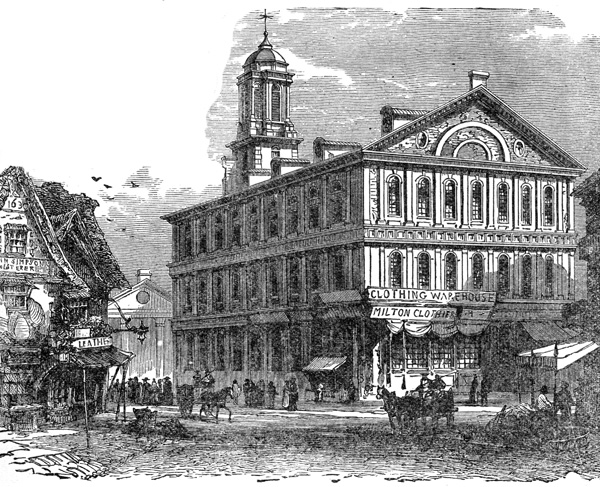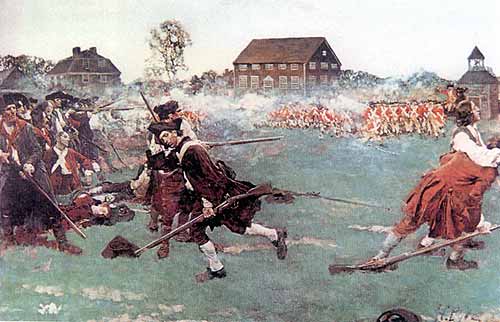Most Americans know about the Declaration of Independence. They may not know all the small details, but they know that it was important and that it occurred at the beginning of our country's founding.

What they don't know is that it was controversial, and I am not just talking about how Great Britain felt towards it.
During the First Continental Congress, the Founding Fathers voted in favor of an Olive Branch Petition to be sent to King George III as a last attempt to state their grievances and avoid a war.
It failed for many reasons, and within a few short years, the American Revolutionary War began at Lexington and Concord.
Here is a list of reasons why this forgotten document failed.
Jump to:
- 1. The French and Indian War
- 2. Colonial Reaction to British Acts
- 3. New England Mindset was Infectious
- 4. It was not realistic
- 5. War had already Begun
- 6. Britain's Interception of John Adams' Letter
- 7. The British Citizens Paid more Taxes than the Colonists
- 8. The Colonists Wanted Independence and did not really want to Negotiate.
- 9. Compromise on Slavery
1. The French and Indian War
The French and Indian War was a small part of a larger war known as the Seven Years' War. During the Seven Years' War, Great Britain defended its colonial properties and homeland against the French.

Many major battles took place in the 13 original colonies, which ended when the British won the Battle of Quebec and took control of Canada.
After the war, Great Britain had a large debt that they needed to take care of and believed that their defense of the colonies should be compensated through taxation.
This caused an uprising in America who believed they should have representation in Parliament if they were to be taxed.
2. Colonial Reaction to British Acts
The British acts were unpopular. The Townshend Acts, Stamp Act, Intolerable Acts, and Tea Act led to controversies such as the Boston Massacre and Boston Tea Party.
The citizens of Colonial America would cost Great Britain millions of dollars, which caused them to repeal some of them.
The British believed that the colonies needed to pay their fair share, while the colonies believed that they were enduring a dictatorship that did not give them representation.
3. New England Mindset was Infectious

To understand the colonial reaction to the Acts of Parliament, it is important to understand the mindset of many within the colonies, especially those in New England.
Each colony had a different story of their founding.
Virginia was founded by men seeking fortune and eventually became wealthy due to the tobacco trade. They had endured a harsh beginning, and many died due to disease, starvation, and even Native Americans. However, they viewed themselves as an extension of their mother country.
The New England colonies did not. Plymouth was founded by Separatists, Massachusetts Bay was founded by Puritans and Rhode Island was founded by Roger Williams as a haven of religious freedom. Each of these colonies viewed their colony as separate from England and a way to start something new.
This would be similar to Pennsylvania, but the Quaker influence made them more tolerant of England's behavior.
Throughout the debates, New England delegates entered the debate as outsiders but eventually began to convince many delegates, including those from Virginia, of the necessity of independence.
By the time the Olive Branch was signed and sent, the mindset of the delegates had already begun to swing.
4. It was not realistic
The Olive Branch petition was championed by John Dickinson, who held much influence in Congress and was a pacifist.
He wanted to avoid war at all costs, but he had already gained his reputation by his scathing editorial about the British Stamp Act.
His pacifism would not allow him to vote for independence, that would lead to war, but he knew that Great Britain would probably not change their mind.
5. War had already Begun

The Battles of Lexington and Concord, the Battle of Bunker Hill, and the Siege of Boston had already occurred prior to the Olive Branch Petition reaching Great Britain.
England had already suffered massive casualties, and if they were to give in to colonial demands, it would make them appear weak, and the colonists would not respect them.
The King had already issued the Proclamation of Rebellion on August 23, 1775, in response to news of the Battle of Bunker Hill, declaring the American colonies to be in a state of rebellion.
6. Britain's Interception of John Adams' Letter
John Adams was not in favor of the Olive Branch Petition. He had debated Mr. Dickinson many times on the Continental Congress floor and had even insulted him a couple of times.
When Dickinson drafted the Olive Branch Petition, and it was sent to England, John Adams wrote a friend a letter. In the letter, he spoke of how the petition was worthless and did not serve a purpose.
Adams also believed that, at this point, the Americans should have arrested the British officials and made them prisoners.
This letter was intercepted by the British and was sent to King George III. It allowed British advocates to argue that the petition was insincere.
7. The British Citizens Paid more Taxes than the Colonists
The rebellion in America was argued by delegates who supported both sides of the argument. However, the citizens of Great Britain did not have much sympathy for the colonists.
The British citizens were dealing with high taxes due to the upkeep of the British Empire and the wars that were fought. They could not escape it as the British coffers were empty.
The colonists did not pay any taxes except for a few invisible ones, and anything that was put in place was already something similar to what a normal British citizen already paid.
There was very little public support for the colonial position.
8. The Colonists Wanted Independence and did not really want to Negotiate.
The New England delegates and their constituents had already made up their minds.
New England was the home of the Sons of Liberty, Paul Revere, Samuel Adams, John Hancock, and the Minutemen. They had already defeated the British Army and inflicted heavy casualties on their reinforcements.
Virginia did not publicly support independence publicly at the beginning, but George Washington did, and John Adams made a wise move when he nominated him as the Commander-in-chief of the Continental Army.
The dominos were already falling.
9. Compromise on Slavery
The issue of emancipation was already beginning to be debated.
England was already beginning to head in the direction of emancipation. However, they were not there quite yet, and while New England and some of the middle colonies believed slavery should be abolished, they knew that the southern colonies, including Virginia, would never agree to it.
The compromise of slavery allowed the South to keep their lifestyle.
Only one can wonder if the same compromise would have been made if the founders knew of the Civil War.
